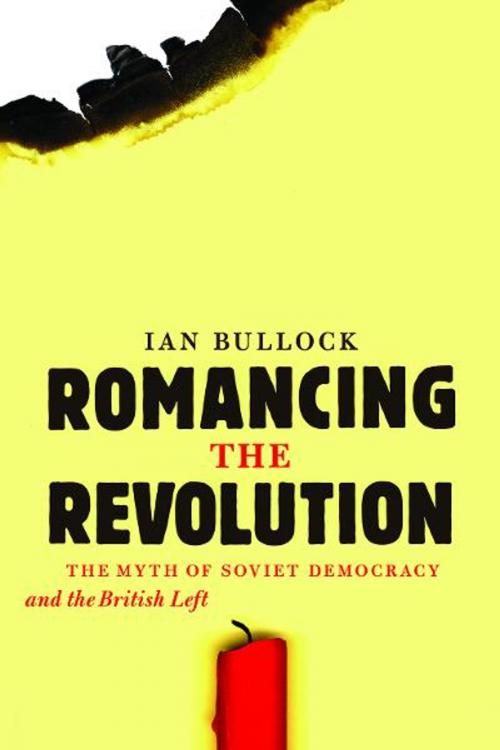Romancing the Revolution: The Myth of Soviet Democracy and the British Left
Nonfiction, Social & Cultural Studies, Political Science, Government, Communism & Socialism, History, British| Author: | Ian Bullock | ISBN: | 9781926836379 |
| Publisher: | Athabasca University Press | Publication: | October 1, 2011 |
| Imprint: | AU Press | Language: | English |
| Author: | Ian Bullock |
| ISBN: | 9781926836379 |
| Publisher: | Athabasca University Press |
| Publication: | October 1, 2011 |
| Imprint: | AU Press |
| Language: | English |
Over two decades have passed since the collapse of the USSR, yet the words "Soviet Union" still carry significant weight in the collective memory of millions. But how often do we consider the true meaning of the term "Soviet"? Drawing extensively on left-wing press archives, Romancing the Revolution traces the reactions of the British Left to the idealized concept of Soviet democracy. Focusing on the turbulent period after the 1917 Russian Revolution, author Ian Bullock examines the impact of the myth of Soviet democracy: the belief that Russia was embarking on a brave experiment in a form of popular government more genuine and advanced than even the best forms of parliamentarism. Romancing the Revolution uncovers the imprint of this myth on left-wing organizations and their publications, ranging from those that presented themselves as "British Bolsheviks"—the British Socialist party and The Call, the Socialist Labour party's The Socialist, Sylvia Pankhurst's Workers' Dreadnought—to the much more equivocal Labour Leader and The New Statesmen.
Over two decades have passed since the collapse of the USSR, yet the words "Soviet Union" still carry significant weight in the collective memory of millions. But how often do we consider the true meaning of the term "Soviet"? Drawing extensively on left-wing press archives, Romancing the Revolution traces the reactions of the British Left to the idealized concept of Soviet democracy. Focusing on the turbulent period after the 1917 Russian Revolution, author Ian Bullock examines the impact of the myth of Soviet democracy: the belief that Russia was embarking on a brave experiment in a form of popular government more genuine and advanced than even the best forms of parliamentarism. Romancing the Revolution uncovers the imprint of this myth on left-wing organizations and their publications, ranging from those that presented themselves as "British Bolsheviks"—the British Socialist party and The Call, the Socialist Labour party's The Socialist, Sylvia Pankhurst's Workers' Dreadnought—to the much more equivocal Labour Leader and The New Statesmen.















